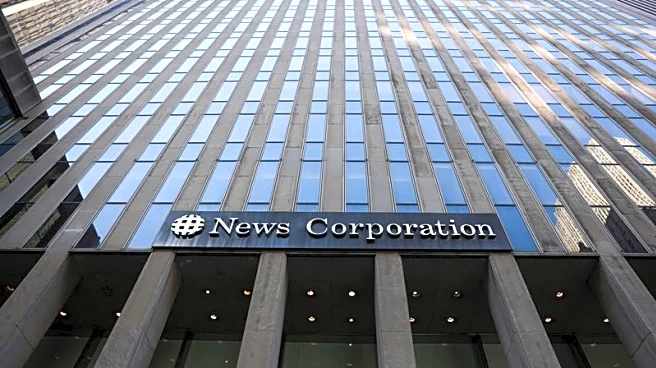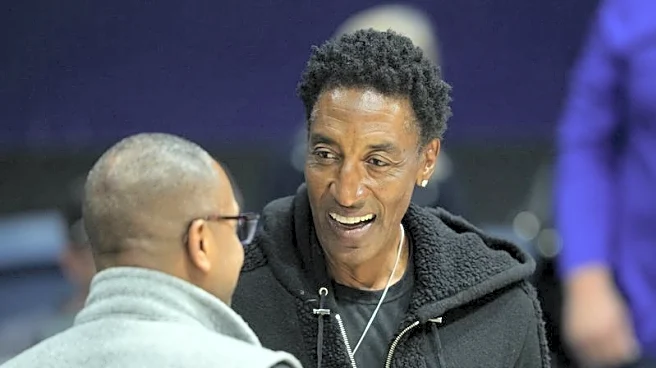What is the story about?
What's Happening?
AI technology is increasingly being used by companies to make hiring and firing decisions, a trend that is reshaping the workplace. Journalist Hilke Schellmann has highlighted the potential flaws in algorithmic hiring processes, which can significantly impact who gets hired. The use of AI in employment decisions is part of a broader trend where machines are taking on roles traditionally held by humans, raising questions about transparency and fairness in the workplace. This development was discussed in a recent episode of TED Radio Hour, which delved into how workers can adapt to a world where machines play a critical role in employment decisions.
Why It's Important?
The integration of AI in hiring processes has significant implications for the job market and workforce dynamics. While AI can streamline recruitment and reduce human bias, it also poses risks such as perpetuating existing biases if the algorithms are not properly managed. This can lead to unfair hiring practices and a lack of diversity in the workplace. Companies and policymakers must address these ethical concerns to ensure that AI technologies are used responsibly. The outcome of these discussions could influence regulatory frameworks and impact how businesses operate, potentially affecting millions of job seekers and employees.
What's Next?
As AI continues to be integrated into hiring processes, there is a growing need for regulatory oversight to ensure ethical use. Companies may need to implement more transparent AI systems and provide training for employees to adapt to these changes. Policymakers might consider developing guidelines to prevent discrimination and ensure fairness in AI-driven employment decisions. The ongoing debate around AI ethics in the workplace is likely to intensify, with stakeholders from various sectors weighing in on the best practices for AI deployment.
Beyond the Headlines
The use of AI in hiring not only affects individual job seekers but also has broader societal implications. It raises questions about data privacy, as personal information is often used to train algorithms. Additionally, the shift towards AI-driven decisions could lead to a reevaluation of skills and qualifications, as traditional metrics may no longer be sufficient. This could result in a transformation of educational and training programs to better prepare the workforce for an AI-driven job market.
















